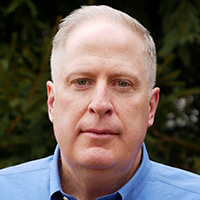 New City Felony Lawyers, New York
New City Felony Lawyers, New York
Sponsored Law Firm
-
 x
x

Click For More Info:
-
Daniel E. Bertolino, P.C.
407 North Highland Avenue Upper Nyack, NY 10960 » view mapDWI, Murder, Rape, Theft & Robbery, more... We Represent Clients in Defense of All Crimes
Our criminal defense practice includes the defense of all levels of felonies as well as misdemeanors and petty offenses. Located in Rockland County, New York.
845-358-9700  Daniel Bertolino Nyack, NY
Daniel Bertolino Nyack, NYAttorney At Law - NY, 1979
Pepperdine University SOL, J.D. - 1978
 YouTube
YouTubeDaniel E. Bertolino - Upper Nyack NY, Criminal Defense Lawyer
 Office InformationEmail or Call 24/7
Office InformationEmail or Call 24/7Click Here for Directions & Support Staff
Sponsored Lawyers
1-1 of 1 matches
Criminal, DUI-DWI, Felony, Traffic
Kevin T. Conway is a local criminal attorney practicing in the field of criminal law. Attorney Conway have over 30 years of experience representing clients through a variety of legal issues. He is licensed in the states of New York, New Jersey, and Connecticut. Mr. Conway maintain local offices in Rockland County and Bergen County routinely appearing and handling all types of criminal cases, including Rockland and Bergen County DWI, in the Superior, County, Justice, and Borough Courts. Kevin T. Conway previously served as the county-wide DWI prosecutor, personally handling the responsibility and oversight of all DWI-related offenses, both misdemeanor and felony, as well as vehicular manslaughter and vehicular assault DWI-related cases. This background has provided him with invaluable experience to assist clients facing criminal or DWI offenses in New York, New Jersey or Connecticut. Attorney Conway regularly appears in the courts in New York, New Jersey, and Connecticut. He maintains a good professional working relationship with the prosecutors and the judges in Rockland and Bergen Counties which allows him to effectively represent your interests in court.
(more)




 Daniel Bertolino Nyack, NY
Daniel Bertolino Nyack, NY YouTube
YouTube Office InformationEmail or Call 24/7
Office InformationEmail or Call 24/7

